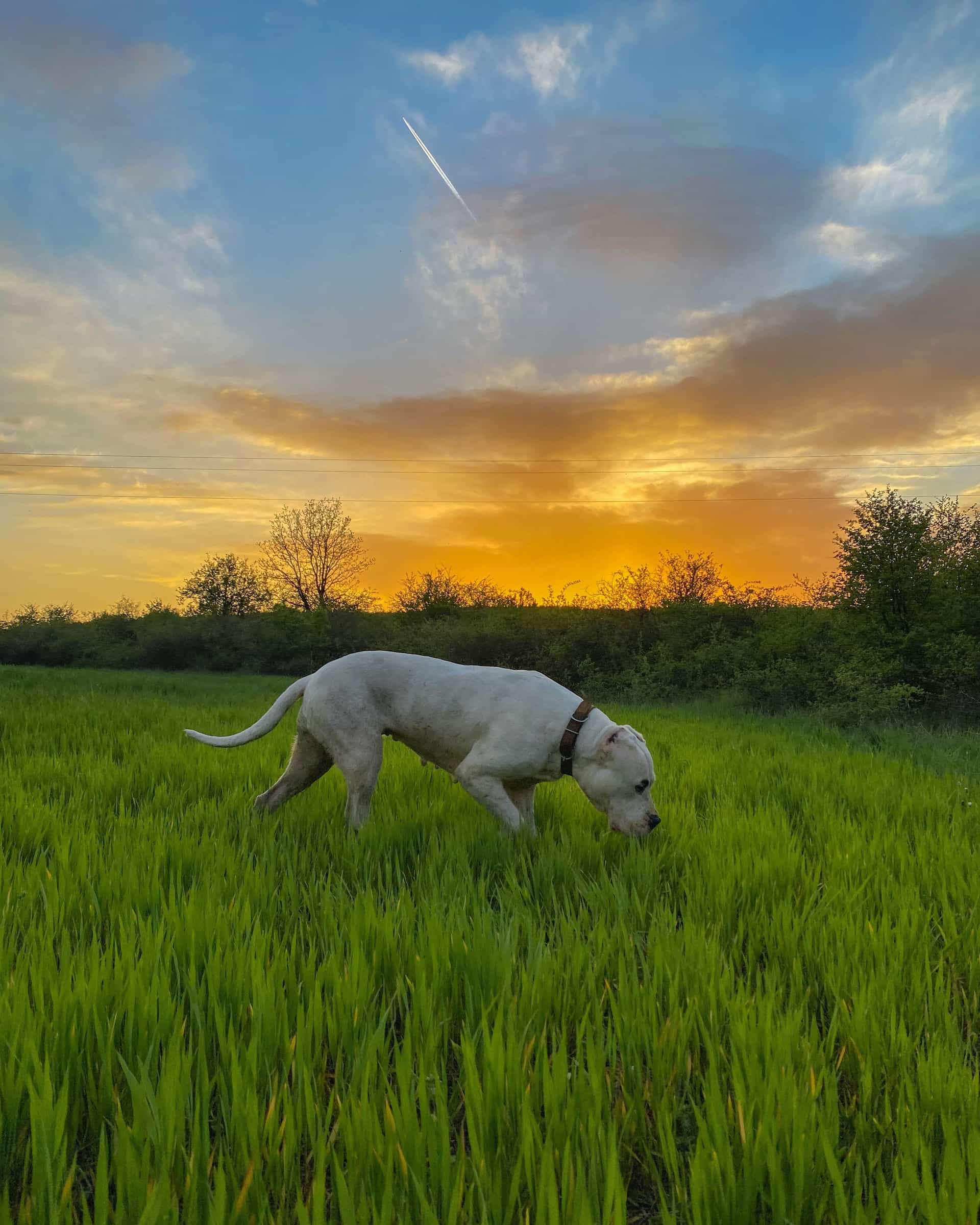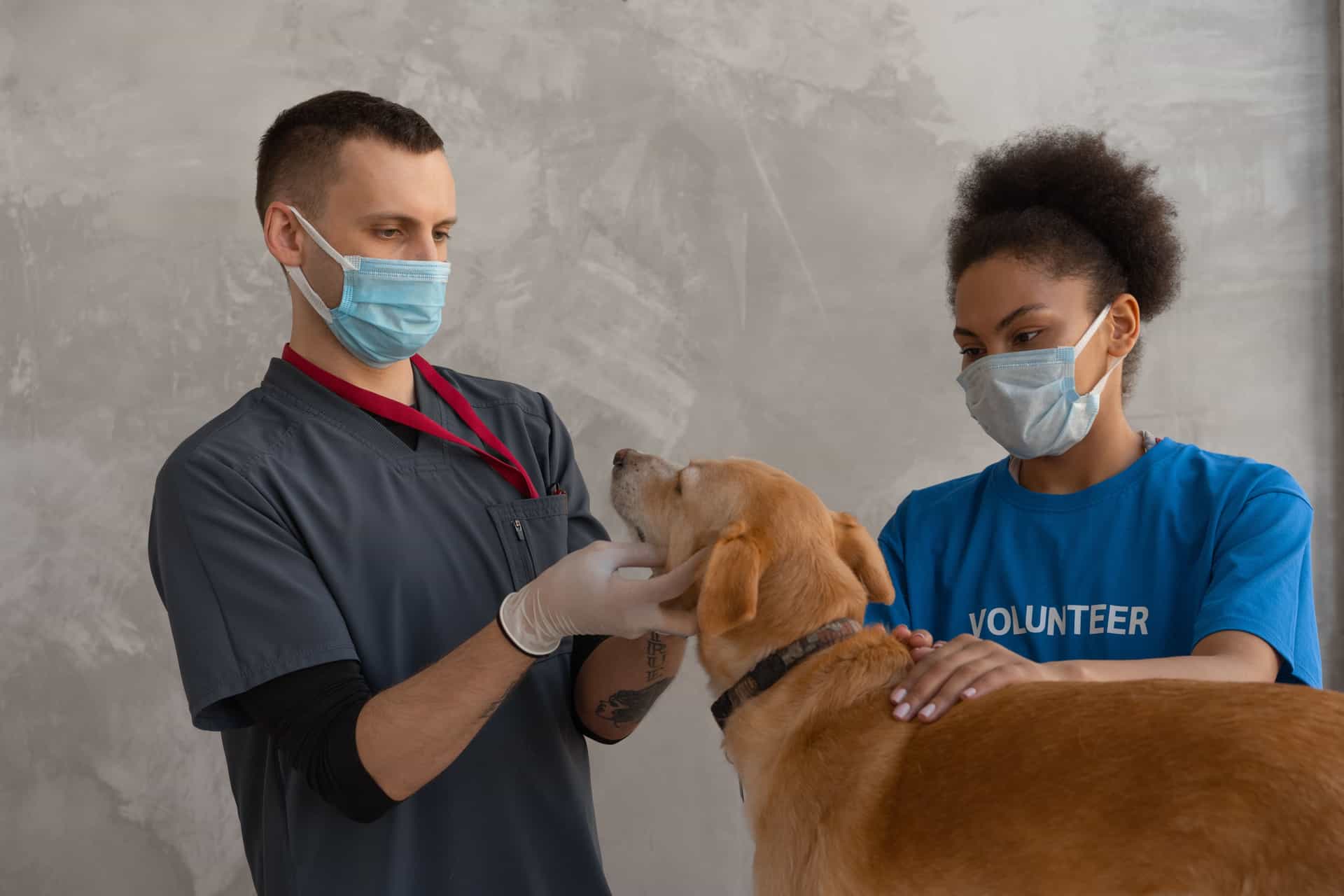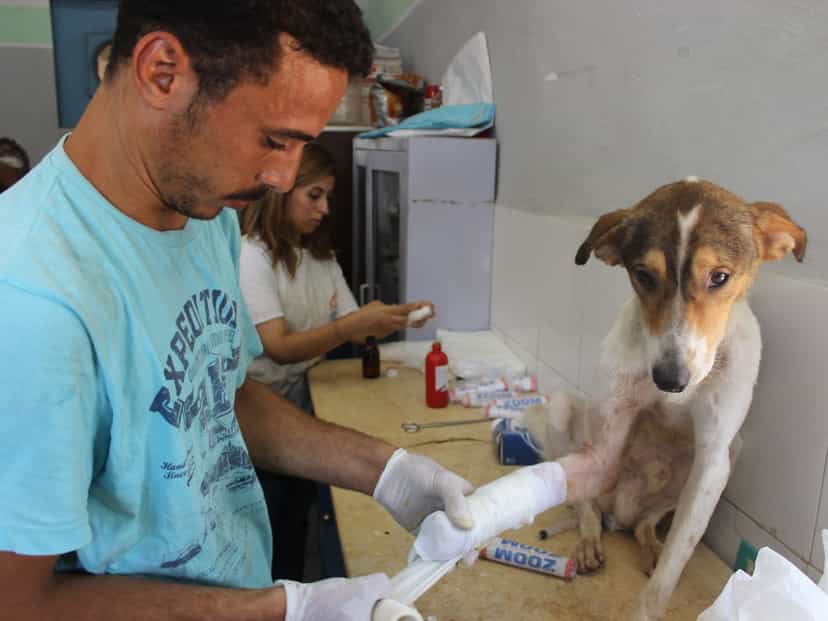
Why do dogs eat grass? How does eating grass effect a dog? What are the health risks of eating grass for dogs? Do dogs only eat grass when they feel unwell? Does eating grass make a dog sick? Our franchise partner from Manchester answers your questions on this interesting theory.
Let’s talk Pica
Did you know there was a word for when dogs eat things that are not food? That’s right – it’s so common there is even a word for it! That word is pica.
When a dog eats grass, this can be considered pica as it is an object that is not considered food.
So why do dog’s eat grass?
The Studies
In an Applied Animal Behaviour Science study conducted in 2008 by 3 students, Sueda, Hart and Cliff, there were 4 hypothesise:
#1 Dogs eat grass when they feel ill.
#2 Dogs frequently vomit after eating grass.
#3 That grass eating reflected a dietary deficiency of some type.
#4 That grass eating is mostly a normal behaviour.

The students conducted 3 studies to prove / disprove the above hypothesise:
Pilot Study – Vet students were asked to complete a questionnaire on plant eating in their dogs to provide preliminary information on the proportion of dogs that show illness before eating grass, and the proportion that vomit after.
The results from 25 pilot studies showed:
8% of dogs regularly vomited after eating grass.
52% occasionally vomited after eating grass.
40% had never been observed vomiting after eating grass.
Study 1 – Conducted to estimate the extent of grass eating behaviour from healthy dogs.
The results from 47 dog owners who completed the survey and met the criteria showed:
21% had never observed their dog eat grass.
79% had observed their dog eating grass or had observed it in their faeces.
12% had reported their dog appearing poorly before eating grass.
18% reported their dog vomited after eating grass.
Study 2 – Conducted to collect descriptive information on dogs that eat grass.
The results from 1571 dogs that met the criteria included 197 intact males, 560 castrated males, 219 intact females and 595 spayed females:
68% reported seeing their dog consume grass weekly or daily.
< 32% reported seeing their dog consume grass monthly.
95% of dogs had access to grass at home, the remaining dogs had access on walks.
Several owners reported their dog appeared selective to type and portion of grass eaten.
92% reported their dogs rarely showed signs of illness before or after eating grass.
78% said their dogs rarely vomited after eating grass.
Dogs between the ages of 3-9 years ate more grass, with the older of the age group more likely to vomit after eating grass.

Results
#1 Dogs eat grass when they feel ill – Disproved.
92% of dogs that ate grass rarely showed illness before eating grass. Given that some dogs do show illness prior to eating grass, we can conclude that it is possible that illness elicits grass eating, but most dogs that ate grass did not show illness prior.
#2 Dogs frequently vomit after eating grass – Disproved
78% owners reported their dog rarely vomited after eating grass in study 2, and only 18% reported their dog vomited after eating grass in study 1.
#3 That grass eating reflected a dietary deficiency of some type – More research required.
This study showed no relationship between type of diet vs frequency of grass eating. In study 1, none of the dogs that did not eat grass were supplemented with fruit and vegetables and 27% grass eating dogs were supplemented with fruit and vegetables which suggests that grass eating was not due to an absence of plant material in the diet, or that offering plant material does not stop grass eating.
Another 2008 study on an 11-year-old, castrated male Miniature Poodle showed the dog to eat grass and vomit on his walks for 7 years. He had no abnormal findings on medical examination and was diagnosed with having a “plant eating problem”. The owner was advised to change the dog’s diet and to feed a high-fibre diet going forward.
The owner reported the dog ceased grass-eating and vomiting from 3 days after the dietary change and continued this behaviour to the follow up consult 13 months later.
This is the only study I could find on diet vs grass eating, which would suggest more studies need to be done to determine whether this hypothesis is correct.
#4 That grass eating is mostly a normal behaviour - YES!
The findings in the study concludes that grass eating is entirely normal, and is not associated with ill health, vomiting or diet.
A further study showed that when examining wolves stool samples, 11-47% ate grass, and that most vets consider grass eating to be normal behaviour.
Perhaps the simplest explanation is that dogs like the taste and texture. Many dogs tend to eat more grass in the Spring when it is newly emerging and looks juicy!
It could also be a comfort behaviour, something from their predecessors that calms them or gives them something to do in times of boredom, anxiety, or loneliness.
Either way, there is no need to be concerned by your dog occasionally eating grass (due to intestinal parasites potentially present on grass, please continue to treat your dog for parasites as normal).
When to contact the vet.
Although grass eating is considered normal, excessive and frantic grass eating is not.
Please contact your vet if:
➢ Your dog stops eating their food
➢ They become lethargic
➢ They are continuously eating grass and vomiting
➢ The y experience constipation or diarrhoea



